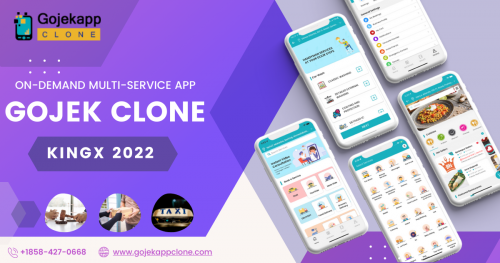In the ever-evolving Information Technology (IT) industry landscape, recruiting top talent has become a strategic imperative for organizations seeking to stay ahead of the curve. As the demand for skilled IT professionals rises, more than traditional recruitment methods may be required. This article explores how integrating Artificial Intelligence (AI)–powered talent assessment tools like Testlify is reshaping IT recruitment, revolutionizing how organizations identify, evaluate, and onboard IT talent.
The Challenges of IT Recruitment
Recruiting for IT positions poses unique challenges. The rapid pace of technological advancements and a shortage of highly skilled professionals have created a competitive hiring environment. Identifying candidates with the right technical expertise, problem-solving skills, and cultural fit has become increasingly complex.
The Rise of AI in Recruitment
Artificial Intelligence has emerged as a game-changer in IT industry recruitment. Its ability to analyze vast amounts of data, recognize patterns, and make data-driven predictions aligns seamlessly with the multifaceted nature of IT roles. AI-powered talent assessment tools are designed to streamline and enhance various stages of the recruitment process, offering a more efficient and effective way to identify top IT talent.
1. Automated Resume Screening
AI-powered tools can analyze resumes at an unprecedented speed, parsing through large volumes of data to identify candidates with the right skills and experience. This accelerates the screening process and ensures a more objective evaluation, minimizing the risk of overlooking qualified candidates.
2. Skills Assessment and Validation
Conducting technical assessments is crucial to IT recruitment. AI-powered tools facilitate real-time skills assessments, allowing candidates to showcase their capabilities through practical tasks and simulations. This ensures a more accurate evaluation of technical proficiency, going beyond what traditional interviews or resumes can reveal.
3. Behavioral Analysis for Cultural Fit
AI doesn’t stop at technical skills; it extends to evaluating soft skills and cultural fit. Natural Language Processing (NLP) algorithms analyze communication patterns, team collaboration preferences, and workplace values, providing insights into a candidate’s compatibility with the organization’s culture.
4. Predictive Analytics for Candidate Success
AI leverages predictive analytics to forecast a candidate’s potential for organizational success. Analyzing historical data of successful hires and their performance metrics, these tools like Ducknowl help in making informed decisions about a candidate’s long-term fit and contribution to the team.
The Impact: A Ripple Across the Ecosystem
The rise of AI-powered talent assessment tools isn’t just a win for IT recruitment; it has a ripple effect across the entire ecosystem. Companies benefit from:
- Reduced time-to-hire: Faster and more accurate candidate assessments mean it identified quickly qualified individuals, streamlining the hiring process and saving valuable time and resources.
- Improved talent acquisition: AI helps identify hidden gems that might be overlooked, leading to a more diverse and high-performing workforce.
- Increased productivity and performance: Hiring people for the right roles translates to higher team morale, better collaboration, and increased productivity and innovation.
- Enhanced employer brand: A fair, efficient, and data-driven recruitment process attracts top talent and improves the company’s reputation as a forward-thinking employer.
The benefits are equally significant for candidates:
- Reduced application fatigue: No more endless rounds of generic tests and interviews. AI personalizes the experience, focusing on showcasing unique skills and potential.
- Increased visibility and opportunities: AI opens doors for individuals with diverse backgrounds and non-traditional resumes, creating a more level playing field.
- Faster and more transparent hiring process: Real-time updates and feedback keep candidates informed and engaged, minimizing stress and uncertainty.
- A better match for their skills and aspirations: AI-powered assessments ensure they place candidates in roles that utilize their strengths and align with their career goals.
Addressing Bias and Promoting Diversity in IT Recruitment
One of the notable advantages of AI-powered talent assessment tools is their potential to mitigate recruitment bias. Traditional methods may inadvertently introduce biases related to gender, ethnicity, or educational background. AI, when trained on diverse datasets, can help ensure a more inclusive and fair evaluation of candidates, promoting diversity in IT teams.
The Inherent Bias in Traditional Recruitment Methods
Explores the biases that can inadvertently be introduced in the traditional IT recruitment process. From gender bias to favoring candidates from specific educational backgrounds, understanding how these biases can impact diversity in IT teams.
Mitigating Bias with AI
A discussion on how AI-powered talent assessment tools, when trained on diverse datasets, can help mitigate biases in the recruitment process. Exploring how these tools contribute to creating more inclusive and diverse IT teams.
The Human Element: AI as a Complement to Human Judgment
While human intuition is valuable, it comes with limitations, especially when dealing with vast amounts of data. AI doesn’t replace human judgment but complements it by providing data-backed insights. It sifts through data objectively, allowing recruiters and hiring managers to make more informed decisions based on a comprehensive analysis of a candidate’s skills, experiences, and potential.
The Value of Human Intuition
Recognizing the irreplaceable value of human judgment and intuition in recruitment. Acknowledging that AI enhances objectivity and efficiency, the human touch remains crucial in assessing qualities like emotional intelligence and adaptability.
Leveraging AI to Augment Human Decision-Making
Illustrating how AI doesn’t replace human judgment but complements it. Emphasizes the symbiotic relationship between AI-powered tools and human recruiters, where the former provides data-backed insights, and the latter brings nuanced understanding and context.
The Future of IT Recruitment: A Continued Evolution
As AI evolves, so will its impact on IT recruitment. The future promises more advanced AI tools, incorporating machine learning algorithms that adapt and learn from each hiring decision. This iterative learning process will enhance the precision and effectiveness of talent assessments, enabling organizations to stay agile in the face of evolving IT landscapes.
Advancements in AI Technology
Anticipating the future developments in AI technology and how they will further enhance talent assessment in IT recruitment. Discussing the potential incorporation of machine learning algorithms that continually adapt and learn from each hiring decision.
Staying Agile in the Face of Technological Evolution
Exploring how organizations can prepare for the evolving landscape of IT recruitment. Advising on staying agile, continuously updating recruitment strategies, and embracing emerging technologies to remain at the forefront of talent acquisition in the IT industry.
Conclusion
In conclusion, integrating AI-powered talent assessment tools like Testlify marks a paradigm shift in IT recruitment. These tools are not just about automating processes but about elevating the entire recruitment experience.
By leveraging the capabilities of AI in automated resume screening, skills assessment, behavioral analysis, and predictive analytics, organizations can navigate the complexities of IT recruitment with unprecedented efficiency and precision. As the IT industry advances, embracing AI is not just an option; it’s a strategic imperative for organizations looking to build high-performing, future-ready IT teams.









